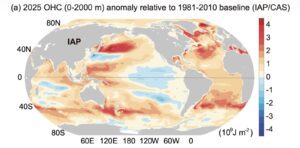The Task Force on Climate-related Financial Disclosures (TCFD), chaired by Michael Bloomberg, published its much anticipated recommendations overnight, which are expected to be adopted via regulation or corporate practice throughout G20 countries.
One of the TCFD’s key recommendations is that companies perform scenario analyses for various climate policy pathways, allowing investors to determine which companies are the most vulnerable to losses, and which are taking genuine action on climate change.
If implemented, the TCFD’s recommendations are likely to have a profound impact in Australia, given that AGL Energy and BHP Billiton are the only companies with fossil fuel interests to have disclosed scenario analyses to investors.
New Market Forces’ research has applied the Oxford Martin Principles to ASX-listed fossil fuel companies, to determine which provide the grounds to investors to “remain engaged” and “support their transition”.
The Oxford Martin Net Zero Carbon Initiative has worked closely with the TCFD to embed “sound climate science within such international frameworks”. In order to stabilize global temperatures, “net global emissions of carbon dioxide must reach zero” by the second half of the century.
Professor Cameron Hepburn, of the Oxford Martin School, suggests “the ‘Working Principles for Investment in Fossil Fuels’ provides high level principles for investors to determine how or whether they should make or retain fossil-fuel-intensive investments”:
- Science: Does the company accept the science that climate stabilisation (at any temperature increase) requires net zero carbon dioxide emissions?
- Strategy: During the transition to net zero, does the company have a strategy to limit future committed cumulative carbon dioxide emissions?
- Milestones and Metrics: Has the company provided milestones and metrics to allow investors to monitor their progress in implementing their transition plan?
Market Forces identified just one ASX300 company with fossil fuel interests that positively addresses each of the Principles – AGL Energy. BHP Billiton, Rio Tinto and South32 partially address the Principles, but fail to provide the strategy or metrics by which their progress towards net zero emissions can be measured. In effect, 21 of 25 companies are not even doing the minimum to warrant engagement, thereby providing grounds for divestment.
Ten of the 25 companies – including Seven Group and WorleyParsons – fail to acknowledge the science of climate change at all, despite the fact that the energy sector is the most likely to be impacted by changes in climate policy.
The recent AGM season in Australia has been punctuated by the lack of progress by companies since the Paris Agreement was reached a year ago. Our fossil fuel companies have largely ignored the Paris Agreement and its implications, instead focussing on business as usual and long-term growth.
In the upcoming US AGM season however, activist shareholders have filed a record number of resolutions focused on climate change. Yet Australian investors have not shown anywhere near as much interest in forcing change at ASX-listed companies. Despite their distinct lack of progress in addressing climate risk, our fossil fuel companies don’t seem to be coming under any pressure at all.
The release of the TCFD recommendations should open a broader conversation about which Australian companies are leading, and which are lagging. It is no longer sufficient for fossil fuel companies to pay lip service to climate risk by addressing it in a corporate sustainability report. Climate risk poses very real threats to the future of energy and utility companies; risks that the TCFD believes “are material for many organisations”, and should be disclosed within their mainstream financial reporting.
Institutional investors must do more to exert their influence over those companies that have proven to be unwilling to change. The TCFD suggests that executive remuneration should be aligned with the management of climate risk, which would be a good place for investors to start. Institutional investors have substantial power over remuneration, as demonstrated by the “strikes” against remuneration at AGL Energy and Commonwealth Bank. Yet institutional investors must go further – by challenging operational strategies and director elections. Ultimately, if companies simply will not change, then investors will be left with no alternative but divestment.








